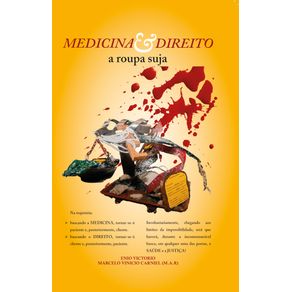-
DEPARTAMENTOS
- ANIMAIS DE ESTIMAÇÃO
- ARTES
- AUTO AJUDA
-
BEM ESTAR E LAZER
-
CATEGORIAS
-
-
CULINÁRIA E GASTRONOMIA
-
CATEGORIAS
-
-
ESPORTES
-
CATEGORIAS
-
- INFANTIL
-
RELIGIÃO
-
CATEGORIAS
-
- ADMINISTRAÇÃO E NEGÓCIOS
-
CIÊNCIAS BIOLÓGICAS E NATURAIS
-
CATEGORIAS
-
- DIREITO
- ECONOMIA
-
MEDICINA
-
CATEGORIAS
-
-
TODOS DEPARTAMENTOS
-
INTERESSE GERAL
-
LIVROS TÉCNICOS
-
- DISCIPLINAS
- ACESSÓRIOS
- FORMATURA
- PAPELARIA
The Rebuke of History
Cód:
491_9780807849606
The Rebuke of History
Autor:
Código:
491_9780807849606
Vendido e entregue por Um Livro
In 1930, a group of southern intellectuals led by John Crowe Ransom, Allen Tate, Donald Davidson, and Robert Penn Warren published Ill Take My Stand: The South and the Agrarian Tradition. A stark attack on industrial capitalism and a defiant celebration of southern culture, the book has raised the hackles of critics and provoked passionate defenses from southern loyalists ever since. As Paul Murphy shows, its effects on the evolution of American conservatism have been enduring as well. Tracing the Agrarian tradition from its origins in the 1920s through the present day, Murphy shows how what began as a radical conservative movement eventually became, alternately, a critique of twentieth-century American liberalism, a defense of the Western tradition and Christian humanism, and a form of southern traditionalism--which could include a defense of racial segregation. Although Agrarianism failed as a practical reform movement, its intellectual influence was wide-ranging, Murphy says. This influence expanded as Ransom, Tate, and Warren gained reputations as leaders of the New Criticism. More notably, such neo-Agrarians as Richard M. Weaver and M. E. Bradford transformed Agrarianism into a form of social and moral traditionalism that has had a significant impact on the emerging conservative movement since World War II.
Veja mais


































